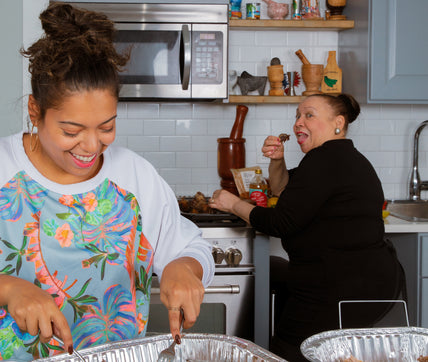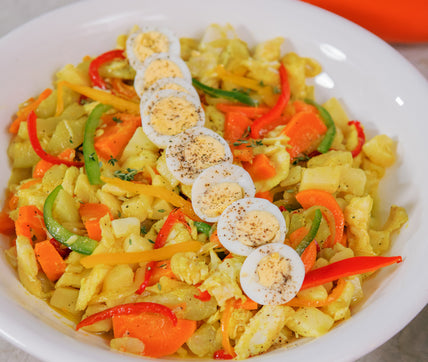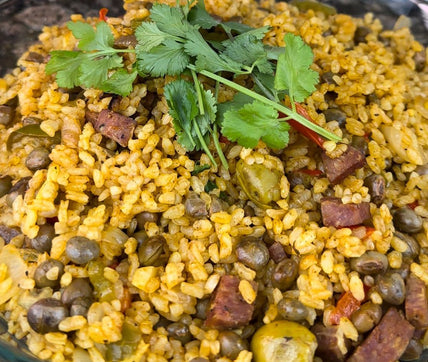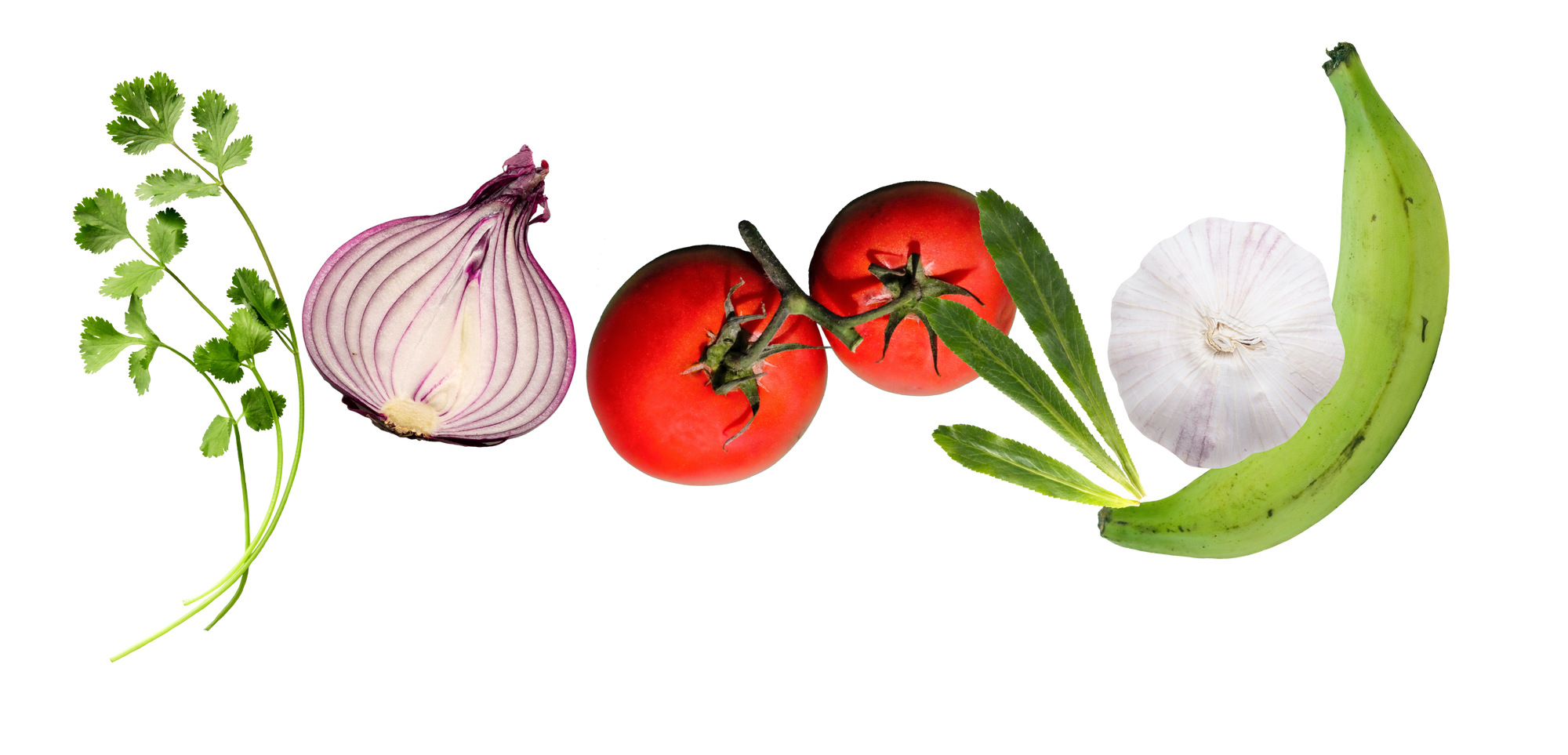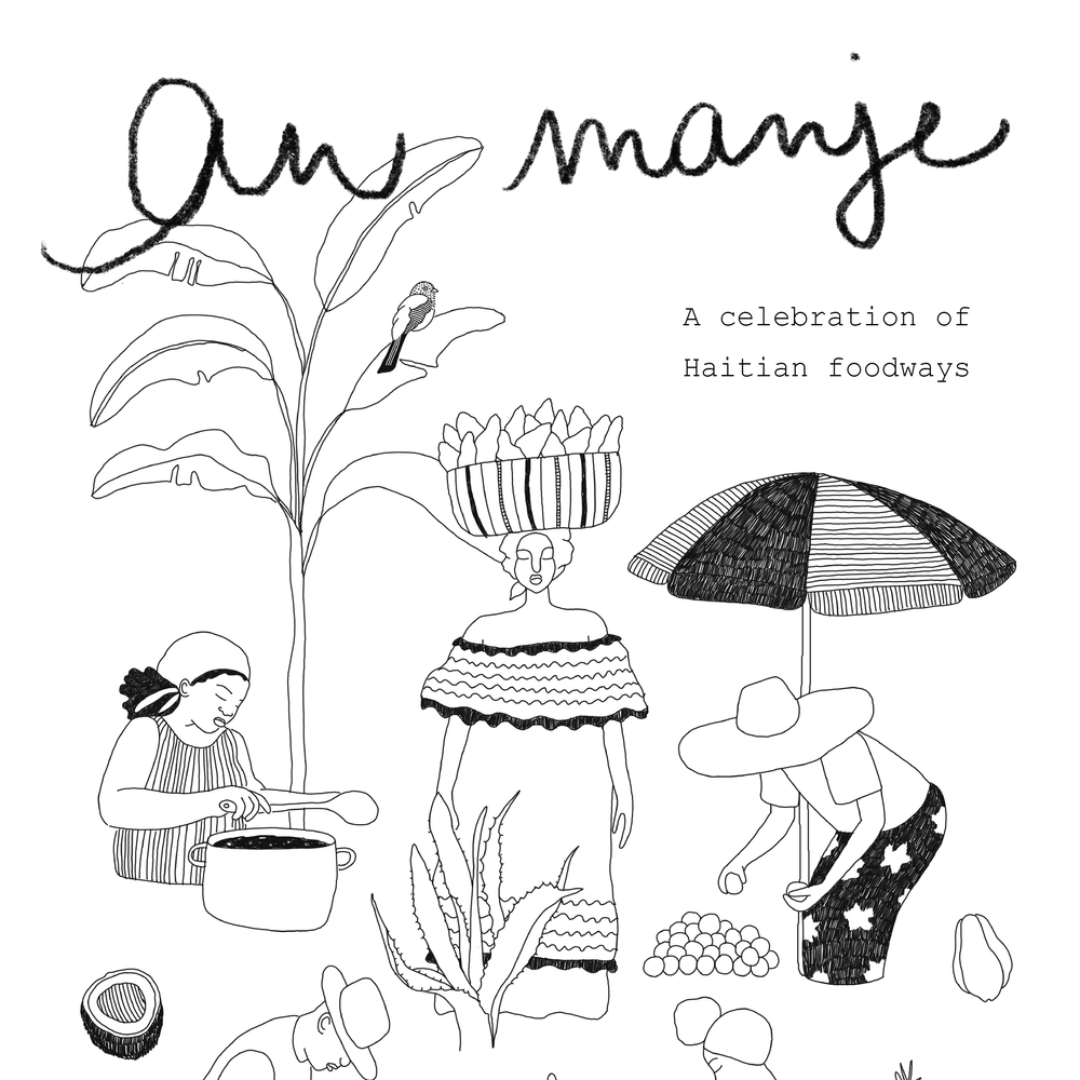
Healing Through Shared Ancestral Foodways
A chat with activist Merelis Catalina Ortiz on the role of food in building solidarity between Dominicans and Haitians.
This article is made in collaboration with Deep Routes, an educational resource and learning community that uplifts Black and Indigenous foodways. Lead by co-stewards Maya Marie and Margo Gabriel, Deep Routes is launching a curriculum "An Manje: A Celebration of Haitian Foodways." This will be a multimedia anthology of written and video essays, interviews, recipes & artwork highlighting Ayiti/Haiti's culinary histories and future visions by Haitian and Haitian-American authors, chefs/cooks, creatives, and more.
In this article, Maya introduces the curriculum and does a Q&A with Merelis Catalina Ortiz, an Afro-Taina Kiskeyana/Dominican activist and contributor to the An Manje curriculum. Throughout this conversation, Merelis shares details about her piece in An Manje, as well as the role of food in building and healing relations between Dominicans and Haitians. We're proud to highlight the important work Deep Routes is doing and support Merelis' contribution to this special curriculum!
By Maya Marie | @deep_routes
Food as medicine is not necessarily a new concept, in fact it's something people of African and Indigenous diasporas will find abundantly in our culinary and agricultural histories if, and when, we take a closer look. Looking to our elders and ancestors, and the dishes we call home, to find the meaning of why certain plants are used in them and how they have endured despite centuries of European colonization built on forced migration and exploitation of African and Indigenous peoples. Such resilience is especially visible when it comes to the many cuisines that span Latin America, where the concept of food as medicine is not limited to just the dishes, but also a vehicle for deeper healing of centuries long wounds.
Such concepts are central to the work of culinary educators like Merelis Catalina Ortiz, Afro-Taina Kiskeyana/Dominican activist, healer and contributor of Deep Routes upcoming anthology “An Manje: A Celebration of Haitian Foodways." Merelis is part of the movement of Dominican culture bearers that are healing, building, and nurturing solidarity between Haitians and Dominicans. With food as her medium, she works to dispel pernicious myths and make education about the nations' shared histories, not only accessible, but also the foundation for bridges that people are excited to cross. With that in mind, we're thrilled to share this Q&A with Merelis as she shares her roots, creative process, and her latest project centering Haitian and Dominican solidarity.

Where do you call home and how has that shaped your identity and your passions?
Home is the unceded territories of the Lenape people, a.k.a New York City. I grew up in Queens, one of the most culturally diverse places in the world. My parents worked in the restaurant industry and exposed my siblings and I to try different cultural foods in the borough. That expanded and shaped my identity and my passion of using food as a way of bringing people together.
The Caribbean is also home for me. My roots are in Ayiti/Kiskeya, [the Indigenous name for the entire island that encompasses Haiti and the Dominican Republic], and I'm the first generation to be born in the US. I grew up going to Kiskeya every two years to visit my family, and I really appreciate that my parents prioritized us taking those trips there to visit family and be connected to the land there. My visits to the island really shaped who I am and really allowed me to be immersed in the culture, from staying in the campo, the rural lands, swimming in the rivers, to knowing the music to eating cultural foods like mangu and sancocho.
One of my fondest memories was traveling the summers to see my aunt, who was like my grandmother. She would cook the most amazing foods. I remember she would kill the chicken right in front of me, clean it, do everything, and cook the most delicious roasted chicken with a side of tostones/fried plantains. So those experiences also shaped who I am and the work that I do with food.

How would you describe your work and what drives you?
I see food as a source for healing ourselves, the land, and our relationship to each other. Whether it's looking at the ways that food can bring people into fellowship with one another and build community, or food being preventative care or healing from health conditions that people have. My work is very connected to my ancestral roots, my lineage, and also respecting very much our first home, which is Earth.
The work I am doing with Deep Routes as a contributor to the An Manje project, I use food as a tool to help heal the relationships between both Ayiti (Haiti) and Kiskeya (The Dominican Republic). Food brings people together anyways. And with my Ayiti/Kiskeya Solidarity piece, I want to be able to talk about food in a way that's fun, but then also talking about those difficult parts of our shared story too. I am a believer of the Ghanaian principle ‘Sankofa’, which means to learn from the past to build the future. That is precisely what I am doing with my Ayiti/Kiskeya Solidarity piece, using food as our way to learn from the past to build our liberated present and future.
The immense strength, the resiliency, the sacrifice, creativity and love of my friends, family, my community of cycle breakers, trailblazers, truth tellers, my benevolent ancestors, and knowing that my existence in this moment in time is to make the world better than how I received it are things that drive me.

What are you most excited about in your An Manje piece?
The different elements that shape it: the narrative, the recipe, and the video component that I’m producing, writing and directing. The video features me and my friend, Andreana Occes.
Andreana is Haitian, and we're both first generation and we’re going to each other’s ethnic enclaves, Little Haiti and Little DR. We try each other's foods by supporting restaurants in the city. It was important to bring that piece of supporting local businesses too. Especially during and after the pandemic, restaurants have been hit hard. And so we’re highlighting the food and learning about who we are through our food.
Just looking at the Haitian mushroom rice dish, Diri ak Djon Djon, and how it highlights legacies of the foraging that [African and Indigenous] peoples were doing on the island during enslavement when European enslavers were not providing them food that was nourishing whatsoever. So things like that, I'm really excited for people to see and engage with as we share these foods, as well as learn more about Haitian and Dominican cuisine.
Is there anything your creative process and research has revealed about the food cultures of Haiti and DR, or in your experiences, that gives you hope about healing between the two nations?
What I've learned is that there are so many similarities in our foods as well as distinctive features, like differences in the spices, but at their core, Haitian and Dominican cuisines are really similar.
And it makes sense since we literally do share an island and do have a shared story where the island has been impacted by European colonization, slavery from France and Spain, and from the US. Although the island has been impacted by these colonizers, we’ve still been able to keep our roots - those African and Indigenous roots - alive through our food.

Early this year, I went to an event organized by the CUNY Haitian Studies Institute [that was about] Haiti and DR building solidarity, [and] something that one of the panelists said stuck with me. He was a Haitian journalist from The Haitian Times and he mentioned there's so much rhetoric focusing on the differences and less on the similarities. We need to talk more about the similarities, what are those similarities? We need to uplift that. More of us are bringing light to those similarities like Dominicans Love Haitians, who this year organized the inaugural Haitian and Dominican Transnational Film Festival. And yeah, I definitely feel like I'm doing that too through this project. And for me, doing this work, and knowing there are many others in the movement of building solidarity with Ayiti/Kiskeya, does give me hope about the healing that is taking place and more of that healing that is still needed between the two nations.
Was there a pivotal moment or person in your life that got you curious to learn about or go deeper into your Indigenous and/or African diaspora heritage?
Oh yes! It was my undergraduate experience at CUNY City College in Harlem that I met three women that got me to go deeper into my Indigenous and African heritage. As a first generation college student, I was fortunate to have a guidance counselor throughout my four years. My guidance counselor's name was Marie Nazon, a Haitian woman that encouraged me to embark on the array of opportunities college had to offer me. We collaborated in a Decolonizing Columbus Day event on campus to talk about the land that the campus it is on, [so students could] learn about Indigenous culture and create a space of remembrance and healing. She also encouraged me in 2013 to go to Ghana. That trip to my ancestral lands changed my life! I began making those connections between Ghanaian, West African culture and Dominican culture from the food, such as Red Red, a plantain and beans dish, to the way of life.

Another impactful person was Griselda Rodriguez Solomon, who was my transnational feminism professor, and she was the first person that I had met that identified as an Afro-Dominican feminist. I call her my big sis now! There was also Isabel Amarante, who taught me a lot about my Indigenous roots and deconstructing Dominican identity. Learning so many things about the foods that we eat, like yucca coming from the Indigenous Taino side of our culture. I’m so grateful to these women who played such a huge role in supporting me in going deeper into these parts of my identity of being an Afro-Taina Kiskeyana/Dominican. Those were the beginnings of my awakening - learning the African and Indigenous roots to my culture and embracing that part of my story of where I come from.
What role do you think education plays in building solidarity between the two nations?
Education is pivotal to healing and building solidarity between the two nations.
For generations, the elite - people with immense economic and political power - have rewritten the history of Kiskeya that demonizes Haitian people or Dominicans of Haitian descent. Also, there aren't many public resources that support free thought, such as well-resourced schools or libraries for people to read and study. Unfortunately, there hasn’t been a lot of investment from the government.
And because of that, there is a population of people that believe whatever they hear or see from politicians, television, and social media. There's a lot of misinformation out there, and many people are not questioning the history they are being taught. There's just some things that don’t make any sense, even when I'm talking with my family. For example, February 27 is when the Dominican Republic celebrates Independence Day from Haiti. They claim that on that day they fought to free themselves from Haiti rule in 1844, after 22 years of unification. When actually, they unified to protect the island’s borders from European colonialism and invasions. The Dominican Republic had to fight for independence from its colonizer, Spain, again in La Guerra de la Restauración from August 16, 1963 to July 15, 1965 with the help of Haiti.

These are things that are not necessarily taught in schools, or that people in positions of power want us to remember. Education plays a role in reminding people about our stories. And I appreciate organizations like InCultured Company as being one of those groups that is doing work with decolonizing Hispaniola/Ayiti/Kiskeya, where it's bringing Haitian and Dominican folks from the diaspora together to learn about both sides of the islands' story and how it's so interconnected to our collective liberation.
Education is pivotal and important to have different avenues where people can learn about the stories of the diaspora and the island. That’s why I'm really grateful to be part of the An Manje anthology/curriculum, and creating a piece that will be available in different formats, [both in] written and video format. The video piece will be released in the summer 2024.
If you want to support Merelis and her work with Deep Routes’ An Manje curriculum you can donate to the project here. If you donate between now through December 8th, you’ll have a chance at winning one of our two raffle prize bundles, one of which includes some culinary goodies from Loisa! “An Manje: A Celebration of Haitian Foodways” is set to release in January 2024, the 220 year anniversary of Haitian Independence.
